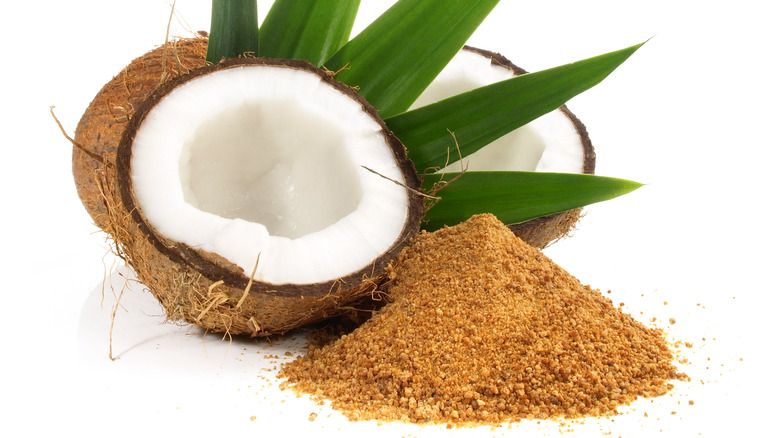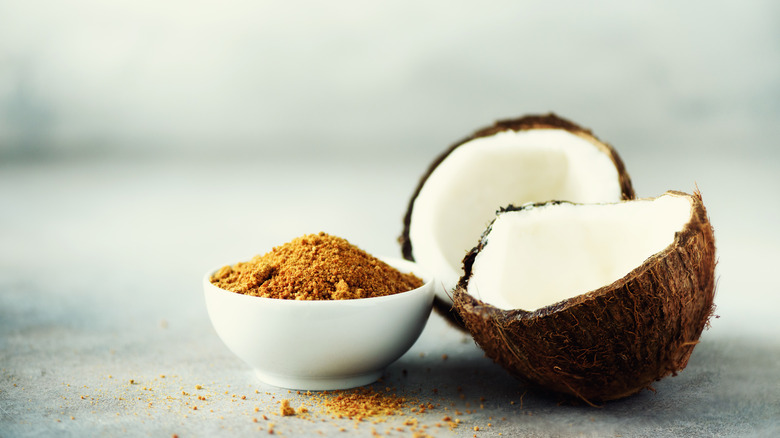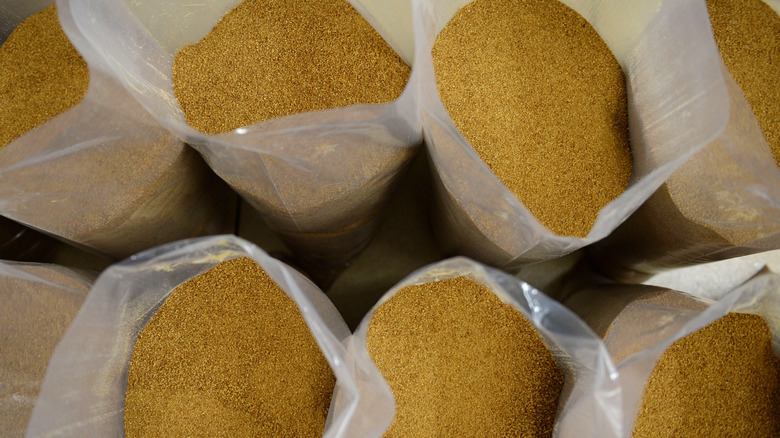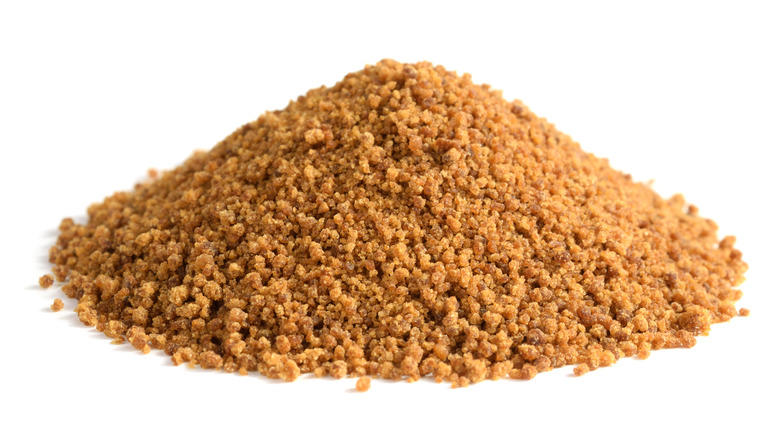What Is Coconut Sugar And Is It Nutritious?
Baking a treat and enjoying it after a long day is one of life's simplest and purest pleasures. But the constant discussion of the negative effects of sugar on the human body can make consuming sweets confusing and guilt-ridden. While most dietitians agree that moderation of everything is key to a balanced and healthy diet, that hasn't stopped many from looking for ways to make sweet cravings better for our health.
Enter the coconut sugar craze. This ingredient has recently come to the front of the line, hailed as a "healthy" natural sweetener and offering itself as a nutritious alternative to cane sugar. But is it?
While coconut sugar may sound new and exciting, it's actually been around for quite some time. In fact it's a very common, if not a staple ingredient, in many Asian countries.
It's only recently that it's been rebranded here in the West as a "superfood" and nutritious ingredient to incorporate into everyday use.
What is coconut sugar and how is it made?
So what exactly is coconut sugar? This increasingly popular sweetener is made from coconut palm sap that's tapped from the palm tree, and not the fruit itself. Similar to the way syrup can be tapped from maple trees, the sap from coconut palms can be extracted and used for a variety of purposes, including coconut sugar.
Coconut sugar is the end result produced after evaporating all of the water out of the sap, creating sweet, granulated particles. In short, this ingredient is really just dehydrated coconut palm sap.
As Healthline describes, it's made in a fairly simple two-step process. First, the coconut palm sap is harvested by cutting the flower of the palm and collecting the sap in containers. Then, the sap is placed under high heat until the water has evaporated.
Coconut sugar vs. coconut palm sugar
As it turns out, coconut sugar and coconut palm sugar are just different names, but really the same thing. So if you're looking for one but can only find the other, fear not! These two labels are just different ways to describe the exact same product.
However, it's good to note that regular old palm sugar is different. This type comes from the trunk of palm trees. According to coconut sugar company IMC, despite being different products, these two ingredients can be incorrectly labeled even at supermarkets — and the company recommends checking the ingredients list every time rather than solely trusting the product's name as verification.
Both coconut palm and palm sugar have similar flavor profiles described as light and molasses-like per The Spruce Eats. However, some like IMC describe palm sugar as having a smokier taste compared to the coconut variety.
Despite the confusing names, the easiest way to find coconut sugar is to look for a sweetener with coconut in the name, then check the ingredient label to confirm the product's origin.
What coconut sugar tastes like and how to use it
While it may be assumed that coconut sugar tastes like coconuts, that's actually not the case. Since coconut sugar is not actually made from the fruit, their flavor profiles couldn't be more different.
Coconut sugar is, however, very sweet! It's most closely linked to tasting like brown sugar, although some like Food & Wine have described it as having a toastier, fuller, caramel-like taste. Others have also described coconut sugar as tasting "deep" and "earthy" (per Thrive Cuisine).
Per Spiceography, coconut sugar can be used as a 1:1 substitute for both white and brown sugar in nearly any recipe. That's to say coconut sugar can be used just as you would use any other sugar.
However, because it does have a slightly different flavor profile, you can get creative with coconut sugar to strategically enhance certain recipes. As The Kitchn reports, because of its toasted and earthy qualities, this sweetener compliments recipes that use warm spices and chocolate, or it can be used to lighten more savory recipes like chicken and curry.
Where can you buy coconut sugar?
Because of its increasing popularity in the States, more and more grocery stores are now carrying coconut sugar. Compared to five or ten years ago, when it was more of a boutique import food, it's significantly easier to find coconut sugar in many retailers today.
If a store does sell coconut sugar, it's most often stocked in the baking aisle near other sugars. However, not every store carries it and it's a good tip to know you're more likely to find it at organic and specialty groceries, or large chain stores like Target, Walmart, and Whole Foods. While it's definitely becoming more and more commercially available, it might not be in every grocery store just yet, particularly smaller ones with fewer items.
But, if other options aren't available, a good guarantee is to order coconut sugar online through Amazon or similar retailers. This option also means you don't have to waste a trip to the store in the event coconut sugar is harder to find in your local area.
Is coconut sugar nutritious?
Coconut sugar rose in popularity partly because of claims that it was a healthier alternative to other sugar options. However, the truth is that it's not all that different than white or brown sugar when it comes to nutrition.
While coconut sugar does retain some nutrients found in the coconut palm, like iron, zinc, and calcium, there's not nearly enough to provide any substantial health benefits, according to Healthline. But, because of these trace nutrients, coconut sugar does have a lower glycemic index, meaning it will have a lesser impact on your blood glucose levels.
Still, similar to other sugars, coconut sugar is extremely high in calories and not considered by many doctors to be "good for you," says Well + Good. The nutrients it does carry are nearly negligible next to the sucrose, glucose, and fructose that make up most of the sugar.
Like anything, moderation is key, and while coconut sugar might have a slight edge over cane sugar, it doesn't mean it's an automatic healthy choice. But, if you want to experiment, here are substitutions you can use in place of coconut sugar.





